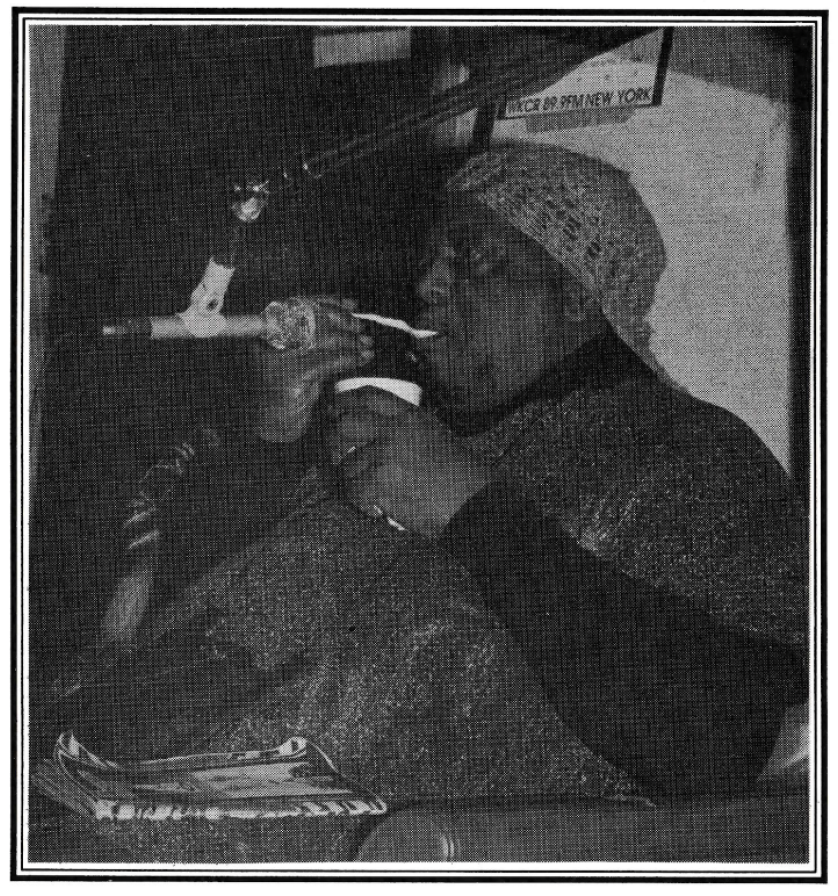
Ornette Coleman Birthday Broadcast:
On Tuesday, March 9th, WKCR will dedicate a full day of programming to the celebration of the 80th birthday of Ornette Coleman!
The musicians and composers of jazz who have left the greatest mark are those who fit into the Ornette Coleman mold; these are the artists who weren't concerned so much with the mastery of craft as with the opening of artistic doors. Ornette (b. March 9, 1930) is and has been pursuing the untouched horizons in music since the beginning of his career. Emerging from the Texas blues tradition (all of his music has the gutbucket wail of the blues in there somewhere), Ornette took L.A. and then New York City by storm with his visionary quartet in the late 1950s. His revolutionary concept placed melody, not harmony, at the center of improvisation. That's the key to really hearing Ornette--it's all in the melodies. He played music that left set chord changes behind, improvising harmony in real time, opening the way for the free jazz innovators of the next few decades. He calls his system of approaching music harmolodics, a compound of harmony, motion, and melody. Ornette continued to work with the musicians from his original pianoless quartet (Charlie Haden at the bass, Don Cherry on trumpet, and either Ed Blackwell or Billy Higgins at the drums) through the early sixties, and then moved to a trio (David Izenzon, bass, and Charles Moffett, drums) that began to explore the rhythmic dimension with greater improvisational freedom. The seventies and eighties brought new sounds with his explorations of electric instrumentation and amplification (his Prime Time band can sound like wild space funk at times), as well as compositions for orchestra. Ornette won a Pulitzer Prize for his 2007 record Sound Grammar, and he continues to play today. Join as we celebrate innovation, relentless individualism, and commitment to artistic freedom.
Bix Beiderbecke Birthday Broadcast:
Wednesday, March 10, tune in to WKCR as we devote a full day of programming to the celebration of Bix Beiderbecke’s birthday.
Cornetist, pianist, and composer Leon “Bix” Beiderbecke, born March 10th of 1903 in Davenport, Iowa, was one of the great musical innovators to emerge in the 1920s. One of jazz’s earliest soloists, he is of enduring importance to the dynamic history of jazz. Young Bix taught himself to play cornet, listening to his brother’s Victrola phonograph and records of the Original Dixieland Jazz Band. When his parents sent him to Lake Forest Academy with the hope that he would focus on academics rather than music, they unwittingly sent him nearest jazz capitol: Chicago. When he broke curfew so many times to hear jazz that he was expelled, he began an illustrious career as a professional musician. He joined a seven-man group called the Wolverines in 1923, leaving the group in a year later to play with the Jean Goldkette orchestra. In 1927, he joined the most popular band of the time, the Paul Whiteman Orchestra, the band of the self-proclaimed “King of Jazz.” Cornetist Rex Stewart recalled, “All of a sudden, comes this white boy from out west, playin’ stuff all his own. Didn’t sound like Louis or anybody else. But just so pretty, and that tone he got. Knocked us all out.” But in 1931, when Beiderbecke was twenty-eight, his alcoholism led to his death. He became “Jazz’s Keats” as Dorothy Baker’s novel, A Man With a Horn, and subsequent Hollywood films mythologized him as jazz’s fallen hero. Beyond the legend, we remember him for his curious, extraordinary style and pure, cool tone. Bix lives!
